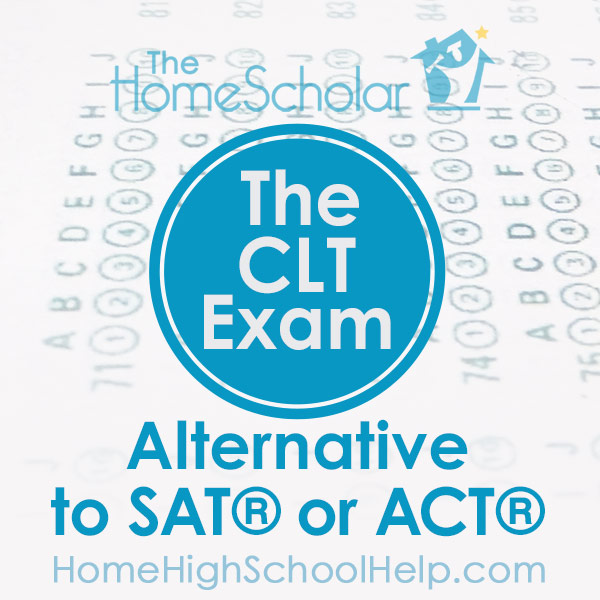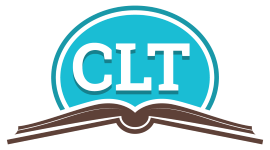Why are classic courses and texts being canceled? And what does standardized testing have to do with them? Join Jeremy Tate, founder and president of the Classic Learning Test, as he dives into the history of college entrance exams like the SAT® and ACT®, explores the current movement to remove the study of the classics, and explains how the CLT is disrupting standardized testing. We’ll also discuss an overview of the CLT Suite of Assessments, and answer any questions.
The CLT is unique because their goal is to test the intersection of intellect and virtue, rather than try to create a values-neutral test. This test was developed as a way to “opt out” of Common Core and focus more on classical education. Reading selections might include passages from C.S. Lewis. Logic and reasoning are also included. Common Core materials will not be on the test. It’s particularly good for classical home educators and students applying to multiple liberal arts and classical-leaning colleges.
The test will reinforce the connection between knowledge and virtue. Students already studying that which is good, true, and beautiful will be well prepared for the exam.
“Finally, brothers and sisters, whatever is true, whatever is noble, whatever is right, whatever is pure, whatever is lovely, whatever is admirable—if anything is excellent or praiseworthy—think about such things.” ~ Philippians 4:8
Let me give you a few CLT test quick facts to get you started.
- CLT is an online test – not paper and pencil
- It is given at local testing centers with a proctor
- Students bring a computer – testing site only provides internet access and the proctor
- Test covers English: Verbal Reasoning, Reading, Grammar, Writing, and Math: Quantitative Reasoning
- Science is not included
- Essay is not included
- It is not accepted by all colleges, so be sure it’s a good fit for you and your college choices
- The test is 2 hours long – less than the SAT® and ACT®
- The cost is about the same as SAT® and ACT®
- They offer pre-CLT tests and test prep materials
- Some scholarships at some colleges are tied to the CLT
“We at the Classic Learning Test (CLT) believe that the ancient philosophers got it right: how someone learns to think, what they read, and how they live, are all intricately connected.
As fellow homeschooling parents, we’ve accepted an enormous responsibility to educate our children through high school. Thanks to people like Lee Binz, The HomeScholar, an important part of our load is lightened and we are free to enjoy the experience, expounding upon the virtues and instilling a joy of learning and understanding into the minds of those to whom we gave life.
When it comes time for college admission testing, however, our children have been sold short with ‘values-neutral’ exams for decades. As we read in the now infamous Harvard Turning the Tide Report, ‘…college admissions offices have joined forces to collectively encourage high school students to focus on meaningful ethical and intellectual engagement.’
The CLT is turning the tide. College and career readiness requires more than just accumulating high school credits or regurgitating a handful of disconnected facts on a standardized test. To be college and career ready means to demonstrate a certain kind of interpersonal and intrapersonal maturity, a kind of maturity not assessed on the ACT®, SAT®, or PSAT/NMSQT®. The best college students and employees are those who can read well, reason well, communicate well, and even see the moral implications of decisions, ideas, and discoveries.”
You can find current and updated information on the CLT at cltexam.com and CLT FAQ. When your time comes to do college admission tests, be sure to check out the CLT.
I recommend that students apply to 4-8 colleges, and a mix of public and private universities, in order to get the best chances of admission and scholarships that allow a student to graduate without debt. Read Three Steps to Finding a College for tips on how to get started making that list of colleges that are a good fit for your child.
It’s unlikely that a student will apply to that many colleges and that they ALL accept the CLT, so be prepared with an SAT® or ACT® score as well. Read How to Ace the SAT® or ACT®: Get the best possible score with the least possible stress.
I hope this is helpful information! Has your student taken the CLT test? What was your experience with it? We’d love to know!
SAT®, AP®, and CLEP® are trademarks owned by the College Board, which is not affiliated with, and does not endorse, this blog post or The HomeScholar, LLC.
PSAT/NMSQT® is a registered trademark of the College Board and the National Merit Scholarship Corporation.





